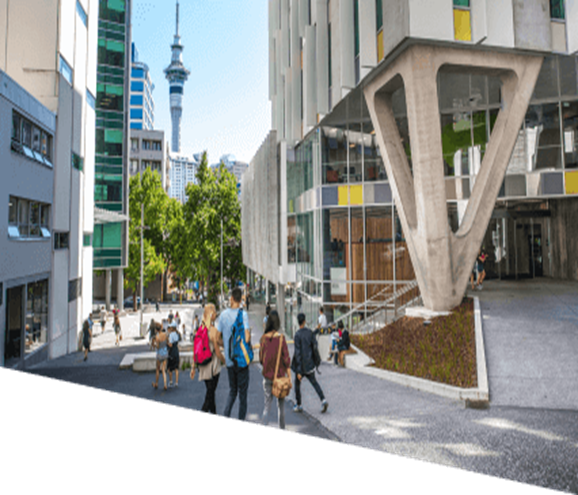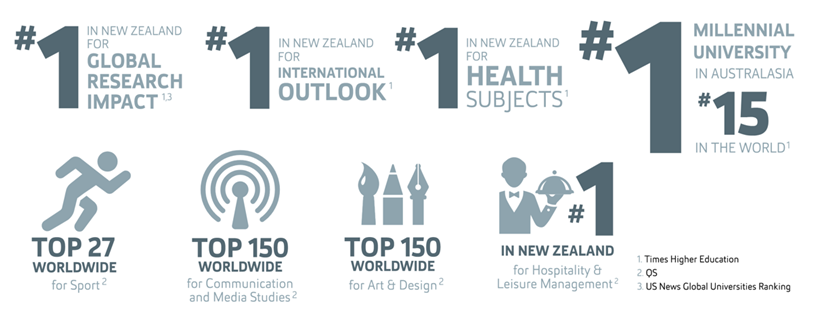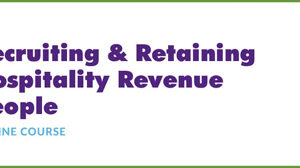Master of Gastronomy Level 9

Master of Gastronomy Level 9
Master of Gastronomy. You study food and gastronomy, food history, food culture, food politics, ethics and sustainability, and food activism related to gastronomy.
Explore the meaning and significance of food in society with this multifaceted postgraduate programme. Strongly influenced by New Zealand and the Pacific, this master’s degree has been developed so that those with a strong interest in these areas can pursue their passion and research interests.
Ed universal Group has ranked our Master of Gastronomy as the 16th best master’s degree in the world for food and beverage management.
Modules
Advance your knowledge in the principles and history of gastronomy. You create new knowledge and critically evaluate information, while learning to communicate it effectively. Exposure to new media and technology will impact the way you develop your ideas and deliver your assignments.
A team of experienced and passionate lecturers with extensive academic and industry experience will guide you through a multidimensional food journey.
Choose 105 points from
- GAST801 Principles of Gastronomy (30 points)
- GAST803 Semiotics of Gastronomy (15 points)
- GAST805 Food, Culture and Society (15 points)
- GAST806 Global Foods and Beverages (30 points)
- GAST807 Politics, Power and Food (15 points)
Or up to 30 points from approved courses from another programme Not all courses may be offered each year.
And complete the following course
- MGMT801 Research Design (15 points)
- And complete a dissertation
- GAST997 Dissertation (60 points)
More details about courses in this programme
Detailed programme structure and course outlines (Blackboard)
Career Outcomes
- Journalism/food writing
- Food historian
- Food-related consultancy
- Education, teacher, lecturer
- Product research and development
- Marketing, communication
- Government and non government agencies – policy, development, health Production management – food service
- Food activism, ethics and sustainability
What will I learn?
A graduate of the Master of Gastronomy will be able to:
a. Demonstrate advanced knowledge and understanding of multidisciplinary theoretical perspectives or constructs applicable to the study of Gastronomy. (Knowledge/Understanding)
b. Discuss the importance and relevance of Gastronomy within a variety of contexts. (Knowledge/Understanding)
c. Critique historical and current development including Aotearoa/New Zealand and the Pacific region relative to global cultures and gastronomic food systems. (Knowledge/Understanding)
d. Display autonomy in expanding their personal and professional knowledge of Gastronomy.(Personal/Intellectual Autonomy)
e. Analyse and critique food policy, ethics, sustainability, and political issues in relation to food, itsproduction and consumption within contemporary society. (Ethical/Professional Dispositions)
f. Integrate an understanding of Te Tiriti o Waitangi with gastronomic constructs of Māoritanga and manaakitanga. (Ethical/Professional Dispositions)
g. Synthesise and critique the relationship between cultural identity and Gastronomy. (Inquiry/Research/Creativity)
h. Select relevant research methodologies and techniques, and apply them appropriately to Gastronomy study. (Inquiry/Research/Creativity)
i. Incorporate a multidisciplinary approach to the analysis and discussion of the constituents of the “local and authentic” within wider themes of difference and globalisation in the context of Gastronomy (Inquiry/Research/Creativity)
j. Evaluate and contribute solutions to local/regional and international contemporary challenges within gastronomic cultures and food systems. (Skills/Application)
k. Communicate effectively and articulate gastronomic themes and philosophies using a range of media (Communication)
<p>Must have completed a bachelor’s degree with a minimum of a B grade average or higher in courses at level 7 or equivalent </p><br>
<p>Apply if you:</p>
<ul>
<li>Are under the age of 20 years; and</li>
<li>Are a citizen or permanent resident of New Zealand or Australia; and</li>
<li>Don’t meet the University Entrance standard; and</li>
<li>Have received secondary schooling to at least New Zealand Year 12 level (or its equivalent overseas) and completed NCEA Level 2 endorsed with Merit or better. This should include at least 14 credits in each of 4 NCEA Level 2 subjects, at least 3 of which must be on the approved subject list; and</li>
<li>Meet the UE literacy and numeracy standards, or their equivalents; and</li>
<li>Have not completed Year 13 at a New Zealand secondary school; or</li><br>
<li>Applications will be considered on a case-by-case basis. Applicants must also be selected into the programme for which they have applied.</li><br>
<p>*waived for Year 13 students at a New Zealand secondary school in 2020, due to the impact of COVID-19.</p><br>
<p>Cost of applying for Discretionary Entrance There is a non-refundable assessment fee of $50.00.</p><br>
</ul>
<b>IELTS Academic</b>
<ul>
<li>6.5 overall with all bands 6.0 or higher; or equivalent</li><br>
<p>Other Recognized English language requirements</p>
<p>Use the following table to see what you need to meet the English language requirements through the Language Cert International ESOL, Trinity ISE, Certificate in English for Academic Study (CertEAS), New Zealand Certificate in English Language (NZCEL), GIE, TOEFL iBT®, Cambridge English: Advanced (CAE) or the Pearson Test of English.</p><br>
<img src="http://ecert.edvantageinternational.com/wp-content/uploads/2021/06/01-d.png"><br><br>
<img src="http://ecert.edvantageinternational.com/wp-content/uploads/2021/06/01-e.png">
<li>28 Feb 2022</li>
<li>18 Jul 2022</li>
</ul>
<p>Applications will be processed up to the start of the semester depending on programme availability. We recommend applying as soon as possible to have the best chance of securing a place in your preferred programme.</p>
<b>Late applications –</b>
<p>if your application arrives after the dates above Your application will be processed if places are available in the programme.</p><br>
<p>If there are no available places, your application will automatically be processed for the following intake, and you will be advised accordingly.</p><br>
<p>Information we need to assess your application We require the following information:</p><br>
<ul><li>Faculty and/or field you wish to conduct your study in</li>
<li>Academic transcripts</li>
<li>Grading scale for postgraduate qualification</li>
<li>Degree certificates (undergraduate and postgraduate)</li>
<li>1-2 page document (maximum) outlining your proposed research project</li>
<li>Curriculum vitae (CV)</li>
<li>If English is not your first language you will need to provide evidence of English Language proficiency – IELTS (Academic) test results or recognized equivalent. If your postgraduate study was completed in English within 3 years, this may be waived</li>
</p>Once the required information is received, we will forward your enquiry to the relevant faculty who will communicate to you about the outcome of your application, possible research areas and supervisors.</p><br>
<p>Requirements for specific subjects</p>
<h4>Arts & Design</h4>
<li>We require a portfolio (between 10-15 annotated images as a Pdf or PowerPoint file or a URL for a website)</li></ul></br>
<p>Contact us at ecert@edvantageinternational.com for further information</p>
<li>Online Blended, Pathway Learning.</li>
</ul>
<p>Contact us at ecert@edvantageinternational.com for further information</p>
<p>AUT offers some of the most comprehensive student services and support in New Zealand – so you know you’ll be well looked after when you study here. Our academic staff are passionate about their subjects and at the forefront of their disciplines.</p>
<p>Many of them are internationally known as experts in their fields, and organisations around the world draw on their expertise for key projects.</p>
<li>Postgraduate Diploma in Gastronomy</li>
<li>Doctor of Philosophy</li>
</ul>
<p>We provide a One-Stop-Shop solution servicing all your needs from</p>
<ul><li>Admission application</li>
<li>Tuition fee payment, </li>
<li>Visa application (for your next On-campus course),and</li>
<li>Other destination services - insurance, forex, accommodation arrangement etc.</li></ul><br>
<p>through our parent company EdVantage International Consulting Limited. </p><br>
<p>Enjoy FREE or Discounted services when you book through EdVantage E-Cert!</p>
<p>Book your Foundation or Pathway course today on Edvantage E-cert.</p>

AUCKLAND UNIVERSITY OF NEWZEALAND
AUT is the second largest university in New Zealand. We have been a university since 2000, but a place of learning for 120 years and operate in accordance with the Education Act (1989).
We’re proud to be one of the world’s best modern universities – Times Higher Education has ranked us as the top millennial university in Australasia and we’re in the top 1% of universities in the world.
When AUT became a university in January 2000, it had a clear vision: to provide its students with exceptional learning experiences, and send them into the world as outstanding graduates. This student-centred vision has guided AUT’s development over the past 20 years.
Now, more than 29,000 students from 137 countries study at AUT across our three campuses in Auckland’s central business district, on the North Shore and in Manukau, making us one of the largest universities in New Zealand
Why study with us?
A world-class university environment
We’re proud to be one of the world’s best modern universities – Times Higher Education has ranked us as the top millennial university in Australasia and number 15 in the world. We have an overall five-star rating from university rankings organization QS, in addition to five star ratings for Teaching, Employability, Research, Inter nationalization, Facilities, Innovation and Inclusiveness.
We have been a university since 2000, and are now the second largest in the country and ranked among the top 1% (251-300) of universities in the world.
Study with us and you can enroll in our range of world-ranked subjects, which include New Zealand’s top-ranked health programmers and one of the world's best sport science school. Study both business and computer and information sciences, and prepare yourself for a wide range of careers in as little as four years.
An innovative teaching and learning space
AUT’s three modern campuses have several award-winning buildings which were created using sustainable principles and feature inviting, collaborative and functional learning areas, auditoriums and research spaces. This includes the state-of-the-art Engineering, Computer and Mathematical Sciences building, which has unique design features that mean it can be used as a teaching tool and ‘living lab’ where students can get hands-on experience.
World-leading staff
Our academic staff are research-active and at the forefront of their disciplines. Many of them are internationally known as experts in their fields, and organisations around the world draw on their expertise for key projects.
Innovative and relevant research
AUT is ranked first in New Zealand for global research impact (the number of times our research is cited by academics globally) by Times Higher Education and the US News Global Universities Rankings.
We have more than 60 research centres and institutes delivering leading research – from space research to artificial intelligence and robotics, and ecology to physical activity and nutrition.
Accreditation/ Recognition
AUCKLAND UNIVERSITY OF TECHNOLOGY
World Ranking




